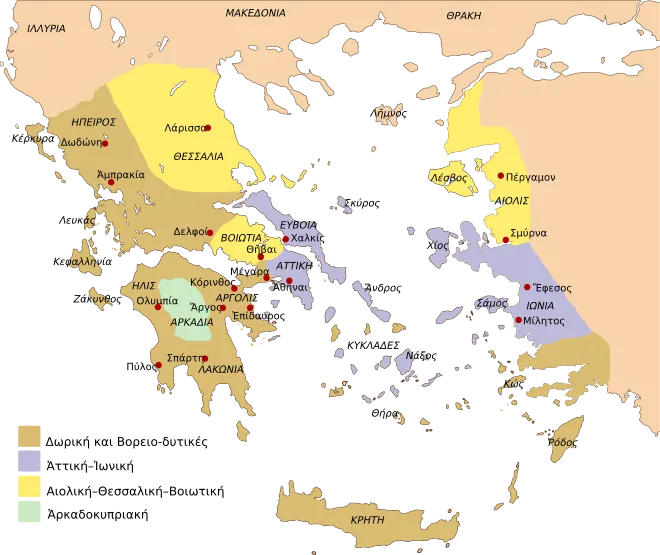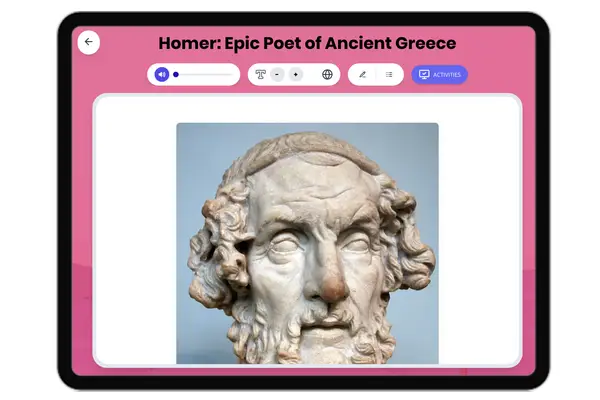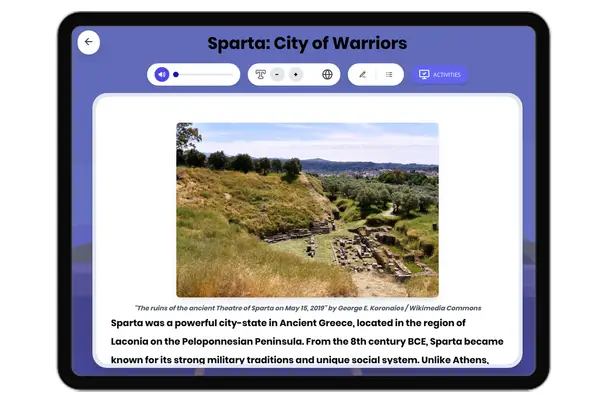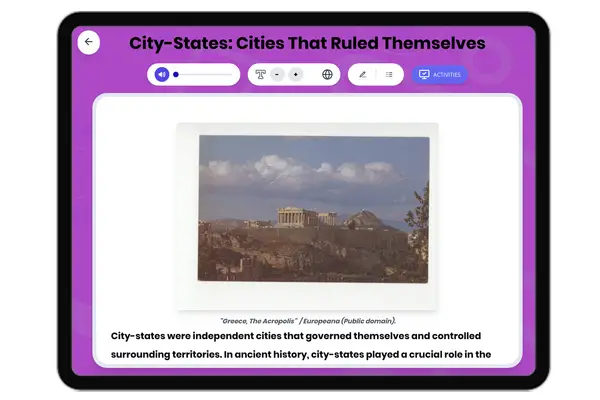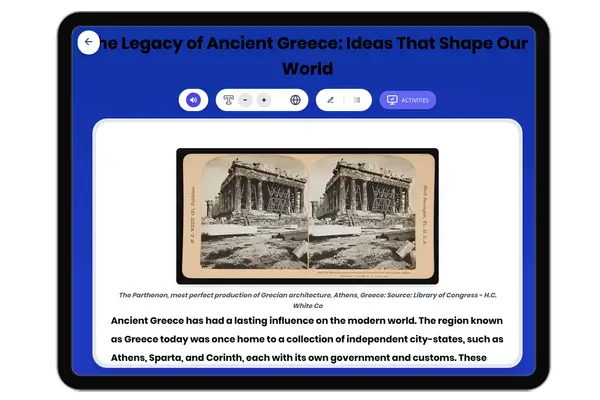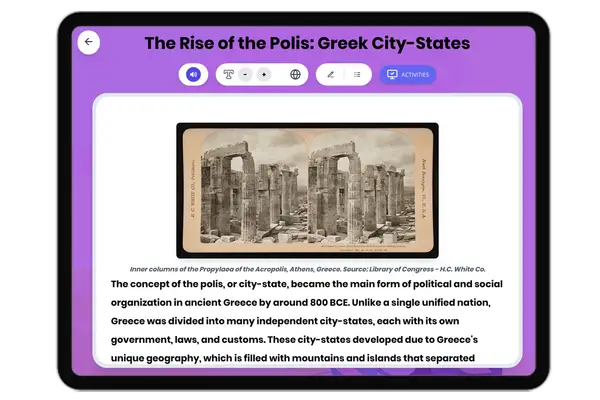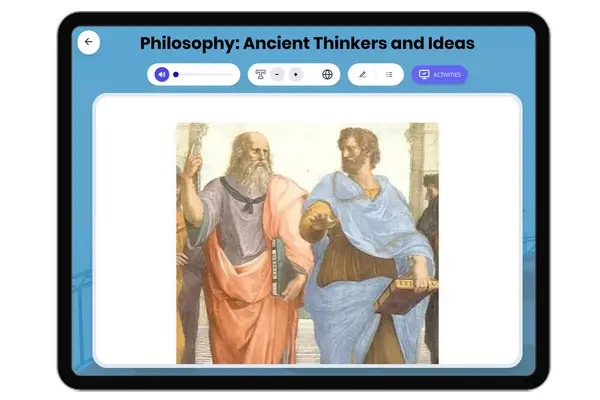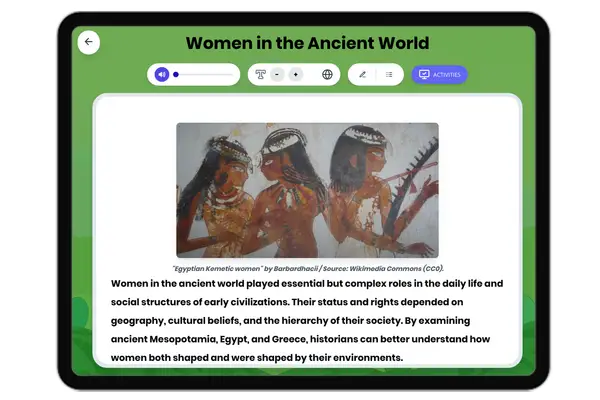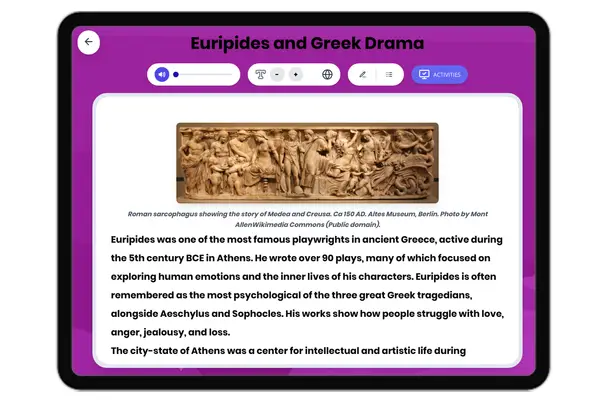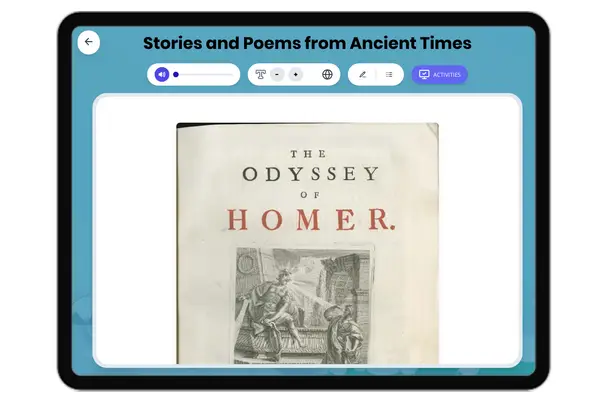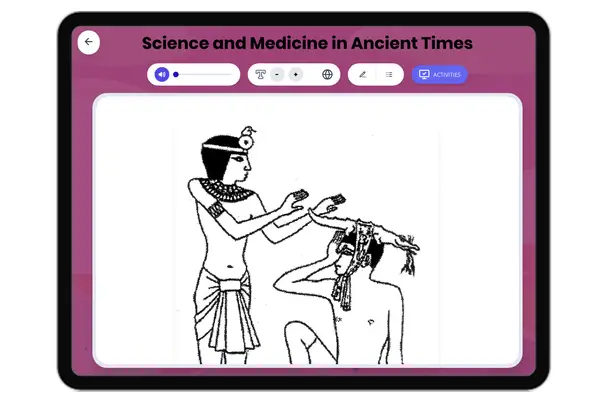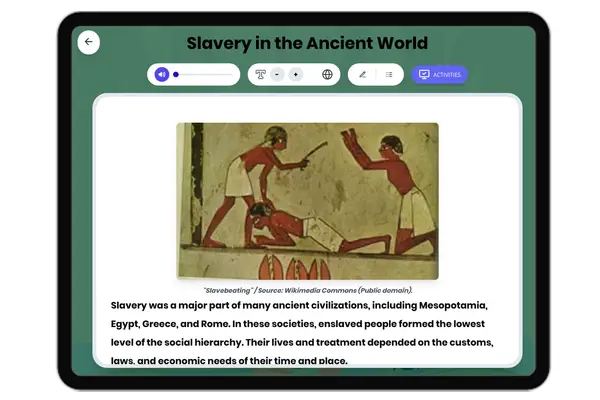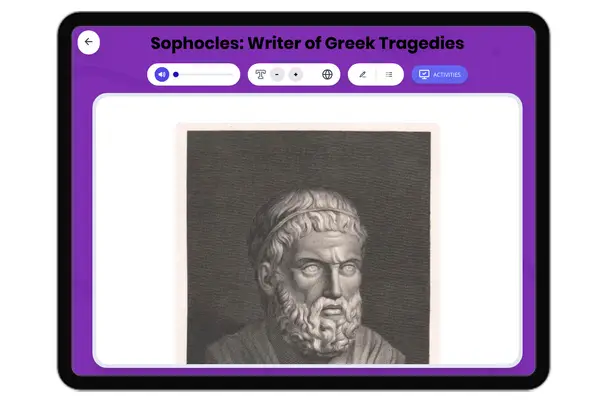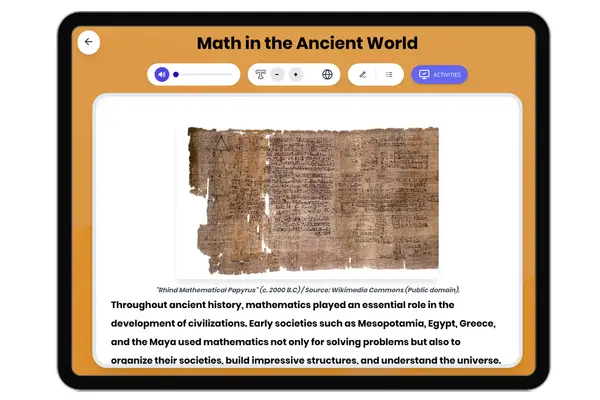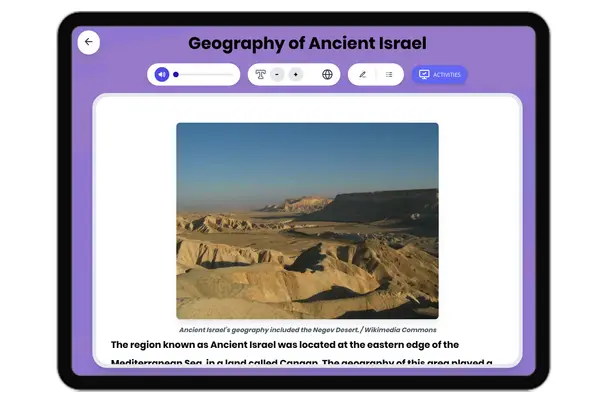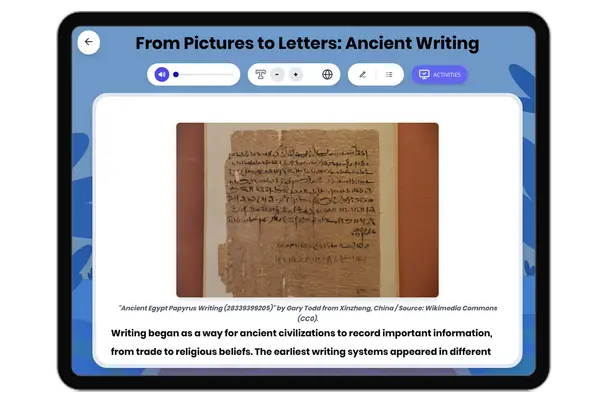The Geography of Ancient Greece — Reading Comprehension
Premium Resource
Grades
- 5
- 6
- 7
- 8
PRINT+DIGITAL RESOURCE
This learning resource is available in interactive and printable formats. The interactive worksheet can be played online and assigned to students. The Printable PDF version can be downloaded and printed for completion by hand.
About This Reader
This rigorous history reading passage explores 'The Geography of Ancient Greece,' examining how the region’s mountains, seas, and islands shaped its development. Students will analyze the impact of physical geography on the rise of independent city-states, trade networks, agriculture, and colonization. The passage includes primary source examples, discusses human adaptation, and highlights cause-and-effect relationships fundamental to ancient history. Aligned with CA HSS 6.4 and CCSS RH.6-8.1, it also supports key Common Core literacy skills and historical understanding. Students will engage with a glossary, differentiated text, activities, and a Spanish translation, as well as a read aloud audio feature. This resource is ideal for building analytical and close reading skills in a middle school history classroom.
Perfect For:
👩🏫 Teachers
- • Reading comprehension practice
- • Auto-graded assessments
- • Literacy skill development
👨👩👧👦 Parents
- • Reading practice at home
- • Comprehension improvement
- • Educational reading time
🏠 Homeschoolers
- • Reading curriculum support
- • Independent reading practice
- • Progress monitoring
Reading Features:
📖
Reading Passage
Engaging fiction or nonfiction text
❓
Comprehension Quiz
Auto-graded questions
📊
Instant Feedback
Immediate results and scoring
📄
Printable Version
Download for offline reading
🔊
Read Aloud
Voice-over with word highlighting



